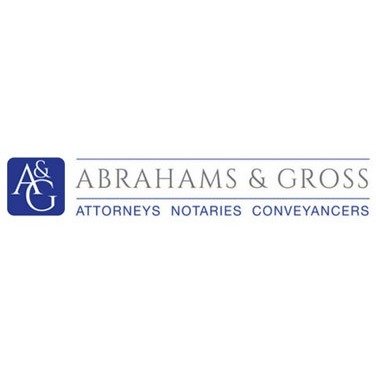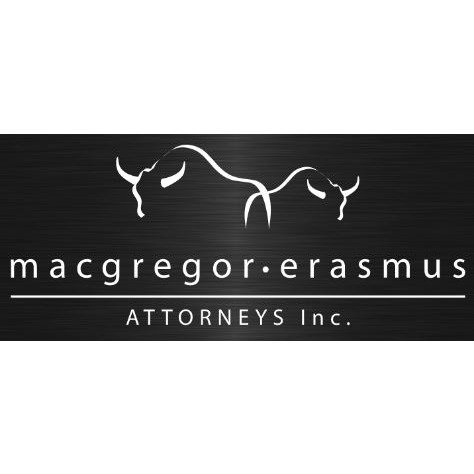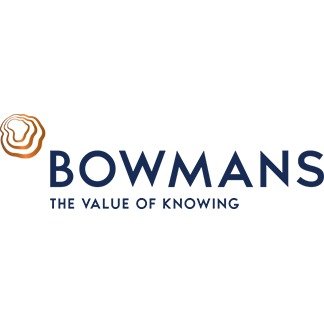Best FDA Law Lawyers in Cape Town
Share your needs with us, get contacted by law firms.
Free. Takes 2 min.
List of the best lawyers in Cape Town, South Africa
About FDA Law in Cape Town, South Africa
FDA Law in Cape Town does not refer to a local arm of the United States Food and Drug Administration. Instead, it pertains to the regulatory landscape governing food, drugs, medical devices, cosmetics, and health supplements in South Africa as overseen by the South African Health Products Regulatory Authority (SAHPRA), the Department of Health, and associated statutes like the Medicines and Related Substances Act and the Foodstuffs, Cosmetics and Disinfectants Act. In Cape Town, as elsewhere in the country, these legal frameworks establish the standards for the registration, manufacturing, import, advertising, and sale of regulated products, protecting consumers and ensuring public health.
Why You May Need a Lawyer
Navigating the regulatory requirements for foods, drugs, medical devices, and cosmetics can be complex and time-sensitive. Common situations where legal counsel in FDA law is essential include:
- Trying to register a new medicine, medical device, or health supplement for sale in South Africa
- Importing pharmaceutical products, medical devices, or foodstuffs into Cape Town
- Complying with labelling, advertising, and packaging requirements for regulated products
- Facing enforcement action, such as product seizures, fines, or recall orders
- Responding to inspections or investigations by SAHPRA or local health authorities
- Dealing with intellectual property concerns related to pharmaceuticals or health products
- Challenging or defending decisions made by regulatory authorities
- Advising on the licensing and operation of pharmacies, clinics, or manufacturing facilities
Legal professionals with experience in FDA-related law can clarify regulatory obligations, represent your business or personal interests before authorities, and help you avoid costly pitfalls.
Local Laws Overview
In Cape Town, compliance with national legislation is critical in the area of FDA law. Key regulatory laws and relevant aspects include:
- Medicines and Related Substances Act (Act 101 of 1965): Governs the registration, control, import, export, and advertising of medicines and scheduled substances. Administered by SAHPRA.
- Foodstuffs, Cosmetics and Disinfectants Act (Act 54 of 1972): Regulates the manufacture, sale, and importation of food, cosmetics, and disinfectants.
- Pharmacy Act (Act 53 of 1974): Regulates the operation of pharmacies and the practice of pharmacy professionals.
- Medical Devices Regulations: Requires registration of most medical devices and health technologies, with requirements for safety, efficacy, labelling, and advertising.
- Local Authority Roles: Municipal health inspectors in Cape Town enforce some aspects of food and cosmetic safety at the retail and hospitality level.
Compliance with both national and local regulations is crucial for market access and to avoid enforcement action. Legal requirements can change, so regular consultation with informed professionals is encouraged.
Frequently Asked Questions
What is SAHPRA and what does it do?
SAHPRA, or the South African Health Products Regulatory Authority, is the national body regulating medicines, medical devices, and complementary health products. It assesses, registers, monitors, and issues licenses for products to ensure public safety.
Do all medicines need to be registered before being sold in Cape Town?
Yes, all medicines must be registered with SAHPRA, whether manufactured locally or imported. Unregistered products cannot legally be sold, except under special authorizations.
What legal requirements must be met to import health supplements into South Africa?
Health supplements are regulated as either medicines or foodstuffs, depending on classification. They may require registration, proof of safety and efficacy, and proper labelling. Import permits from SAHPRA or the Department of Health may be needed.
How are cosmetic products regulated in Cape Town?
Cosmetics are regulated under the Foodstuffs, Cosmetics and Disinfectants Act. They must meet safety standards, have clear ingredient labelling, and are subject to advertising restrictions. Some ingredients are prohibited or restricted.
What must I do to start a pharmacy or dispensary in Cape Town?
You must obtain registration with the South African Pharmacy Council and comply with the Pharmacy Act. Premises must meet specific legal and health requirements, and responsible pharmacists must be registered professionals.
Can I bring personal medication into South Africa?
Yes, you can bring personal-use medication provided it is for personal use, in reasonable quantities, and accompanied by a doctor’s prescription if required. Certain controlled substances may be banned or restricted.
Are there specific rules for food labelling in South Africa?
Yes, food products must comply with detailed labelling standards, including ingredient lists, nutritional information, allergens, and country of origin. Misleading health or safety claims are prohibited.
What penalties exist for selling unregistered medicines or medical devices?
Penalties include product confiscation, fines, license revocation, and potential criminal prosecution. Directors and employees of businesses can be held liable for non-compliance.
Is advertising regulated for medicines, health products, and foodstuffs?
Yes, advertising is tightly regulated. Medicines may only be advertised as permitted in their registration, and there are restrictions on advertising certain scheduled substances or making unsubstantiated claims.
Can I appeal a negative decision by SAHPRA or local authorities?
Yes, you can appeal administrative decisions by SAHPRA or health authorities. There are formal procedures and timelines in legislation. Legal assistance is recommended for effective representation.
Additional Resources
If you need more information or wish to stay current with regulations, consider these resources:
- South African Health Products Regulatory Authority (SAHPRA)
- Department of Health, South Africa
- South African Pharmacy Council
- Western Cape Department of Health
- Municipal Health Services, City of Cape Town
- South African Association of Pharmacists and Allied Healthcare Professionals
- South African Institute of Intellectual Property Law
- Professional legal firms specializing in health and pharmaceutical law in Cape Town
Next Steps
If you believe you require legal assistance regarding FDA law in Cape Town:
- Gather all relevant documents, such as product descriptions, registration records, correspondence with authorities, and any enforcement notices.
- Identify the exact nature of your concern - whether registration, compliance, importation, enforcement, or advertising.
- Reach out to a legal professional specializing in health products, pharmaceutical, or food law. Request a consultation to discuss your situation.
- Be prepared to provide detailed information about your products and business to allow accurate legal assessment.
- Stay informed of changes to local and national regulations by subscribing to updates from SAHPRA or relevant government bodies.
Obtaining legal advice early can safeguard your business, ensure compliance, and help resolve disputes swiftly in the highly regulated area of FDA law in Cape Town, South Africa.
Lawzana helps you find the best lawyers and law firms in Cape Town through a curated and pre-screened list of qualified legal professionals. Our platform offers rankings and detailed profiles of attorneys and law firms, allowing you to compare based on practice areas, including FDA Law, experience, and client feedback.
Each profile includes a description of the firm's areas of practice, client reviews, team members and partners, year of establishment, spoken languages, office locations, contact information, social media presence, and any published articles or resources. Most firms on our platform speak English and are experienced in both local and international legal matters.
Get a quote from top-rated law firms in Cape Town, South Africa — quickly, securely, and without unnecessary hassle.
Disclaimer:
The information provided on this page is for general informational purposes only and does not constitute legal advice. While we strive to ensure the accuracy and relevance of the content, legal information may change over time, and interpretations of the law can vary. You should always consult with a qualified legal professional for advice specific to your situation.
We disclaim all liability for actions taken or not taken based on the content of this page. If you believe any information is incorrect or outdated, please contact us, and we will review and update it where appropriate.

















